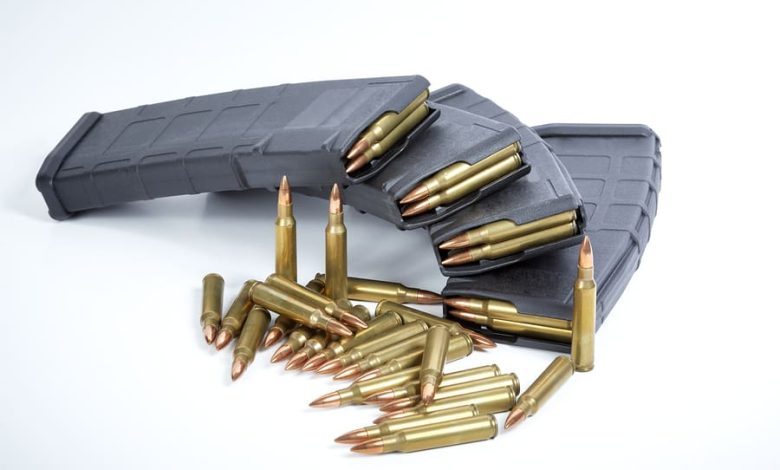NRA Argues Against Washington Mag Ban In State Supreme Court Filing

With the Washington State Supreme Court set to begin considering the state’s ban on firearms magazines that can hold more than 10 rounds, pro-rights groups are giving the court something to think about.
In the case State of Washington v. Gator’s Custom Guns Inc., the National Rifle Association recently filed an amicus brief explaining why the law is unconstitutional under the Second Amendment.
The defendants in the case are a retail firearms dealer and its owner. The case has progressed through the system, with a trial court ruling the law unconstitutional, but in April, the state Supreme Court granted a stay.
In the brief, the NRA began its argument by simply asserting that past Supreme Court cases have set the precedent necessary for the court to find the law unconstitutional.
“Because Americans own over 100 million magazines that hold over 10 rounds, the prohibited arms are common,” the brief stated. “And the Supreme Court has held that bans on common arms violate the Second Amendment.”
The brief then explained that the law doesn’t meet legal muster under the “plain text” of the Second Amendment standard.
“Heller, invalidating the District of Columbia’s handgun ban, applied the test later expounded in New York State Rifle & Pistol Ass’n, Inc. v. Bruen, which controls here: ‘In keeping with Heller, we hold that when the Second Amendment’s plain text covers an individual’s conduct, the Constitution presumptively protects that conduct,’” the brief stated. “Conducting the plain text analysis of the Second Amendment, Heller determined that ‘[t]he Second Amendment extends, prima facie, to all instruments that constitute bearable arms.’”
The Bruen standard also requires a historical analysis, which the NRA argued in their brief is a standard that also cannot be met in the Washington magazine case.
The State failed to provide a historical tradition of prohibiting common arms. Nor could it; as Heller held, there is no such tradition,” the brief stated. “Although magazines and repeating arms with greater than 10-round capacities existed during the relevant historical periods, the State instead relies on restrictions—not prohibitions—on weapons such as trap guns, clubs, Bowie knives, and handguns.”
The brief also went into a lengthy explanation of how the state’s argument that magazines holding more than 10 rounds have only been developed recently is incorrect.
“The State attempts to excuse its failure to carry its burden by asserting that the banned arms represent ‘recently developed technology,’” the brief stated. “In fact, repeating arms predate the Second Amendment by roughly three centuries; repeating arms utilizing magazines predate the Second Amendment by over one century; the Founders embraced repeating arms—including Joseph Belton’s 16-shot firearm during the Revolutionary War and Joseph Chambers’s 12-shot muskets and 226-shot swivel guns purchased by the U.S. military and Pennsylvania militia in the early 19th century.”
The brief also mentioned, “… myriad repeating arms with greater than 10-round capacities were invented in 19th-century America—including the commercially successful 16-shot Henry Rifle in 1861 and the overwhelmingly popular Winchester Rifles starting in 1866; and semiautomatic firearms were invented in 1885, while detachable box magazines were invented in 1862. Despite continuous technological advancements over hundreds of years and their widespread popularity in the 19th century, neither the sale nor possession of repeating arms of any capacity were ever banned in America.”
In the end, the brief argued that the court should find the magazine ban unconstitutional and bar enforcement of it.
“Washington’s ban on commonly possessed magazines is unconstitutional,” the brief concluded. “It is not only the plain text of the Second Amendment that is made applicable to the states by the Fourteenth Amendment, but also the Supreme Court’s interpretation of that text. The trial court’s decision is faithful to both the plain text of the Second Amendment and the Supreme Court’s interpretation of that Amendment. It should be affirmed.”
Read the full article here








